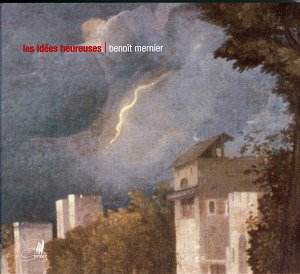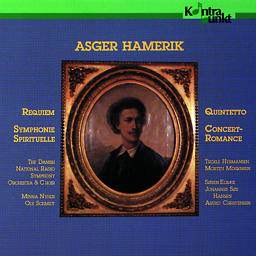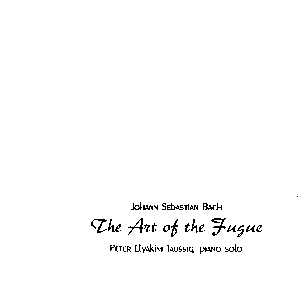 Composer: Benoît Mernier
Composer: Benoît Mernier
Works: Clarinet Quintet (1998/9), Les Niais de Sologne (1999), Les Idées Heureuses (1996/7), Intonazione (1995)
Performers: Jean-Michel Charlier (clarinet), Quatuor Danel, Ensemble Musiques Nouvelles, Fabian Panisello (conductor), Ictus Ensemble, Georges-Elie Octors (conductor), Orchestre Philharmonique de Radio France
Recording: Corroy-le-Château, September 1999 (Quintet), Studio Dada, Brussels, March 2001 (Les Niais), May and June 2001 (Les Idées Heureuses), Salle Olivier Messiaen, Paris, November 1997 (Intonazione)
Label: CYPRES
Benoît Mernier emerges in this recording as one of Belgium’s most compelling contemporary composers, a figure whose oeuvre reflects a rich dialogue between traditional forms and modernist explorations. The selection presents a thoughtful cross-section of his output from the late 1990s to the early 2000s, showcasing his evolving musical language. Each work encapsulates a unique aspect of Mernier’s compositional voice, which is marked by a keen sensitivity to color, texture, and narrative, firmly situated within a contemporary classical ethos.
The Clarinet Quintet, originally composed as a companion to Marcel Fabre’s silent film Amore Pedestre, radiates a playful exuberance that belies its origins. Mernier’s score is replete with vivid instrumental dialogues that exploit the clarinet’s expressive range. Jean-Michel Charlier’s interpretation is particularly noteworthy; his clarinet playing is both nimble and lyrical, navigating the work’s varied moods with a deftness that enhances the quintet’s inherent charm. The Quatuor Danel provides a robust yet nuanced backdrop, ensuring that the ensemble’s textures remain transparent and engaging. The balance between the instruments is meticulously achieved, allowing the clarinet’s voice to soar above the strings while still engaging in intricate counterpoint.
In contrast, Les Niais de Sologne presents a more enigmatic character, drawing inspiration from Rameau and exploring themes of simplicity and cunning. The ensemble’s performance captures the piece’s playful subversion, with each member contributing to the elusive harmonic landscape that Mernier crafts. The ambiguity in the piece’s structure creates a sense of tension and release that is expertly navigated by conductor Fabian Panisello. The musicians embrace the subtleties of rhythm and dynamics, highlighting the spectral elements that are characteristic of Mernier’s style. This work, with its intricate dialogues and thematic games, showcases the composer’s ability to merge humor with complexity.
Les Idées Heureuses stands out for its inventive use of instrumentation, scored for two pianos and percussion. This work reflects Mernier’s penchant for exploring the interplay between different sound worlds. The outer movements unveil a kaleidoscope of textures, while the inner sections reveal a more intimate exchange. The performance here is crisp and vibrant, with each pianist articulating their parts with clarity and precision, allowing the percussive elements to punctuate the musical discourse effectively. Interestingly, the work’s structure resonates more with Berio’s Linea than Bartók’s more rigid forms, suggesting Mernier’s inclination towards fluidity over strict formalism.
Intonazione, the earliest work featured, serves as an orchestral showcase that nods to the rich heritage of organ music by the Gabrieli brothers. Its orchestration is lush and colorful, drawing parallels to the late works of Berio while maintaining a distinct identity. The recording quality is excellent, capturing the nuanced dynamics of the Orchestre Philharmonique de Radio France under Georges-Elie Octors. The vivid soundscape allows the intricate interplay of orchestral timbres to emerge, making this piece one of Mernier’s most accomplished works. The engineering of the live performance preserves the immediacy of the orchestral sound, enhancing the listening experience.
Overall, this recording of Benoît Mernier’s works is a testament to his artistry and the interpretative skills of the performers. Each piece, with its unique character and sonic landscape, reflects the composer’s engagement with both contemporary techniques and historical influences. The performances are executed with an admirable understanding of Mernier’s style, and the recording quality ensures that every nuance is heard. This disc not only serves as an introduction to Mernier’s compelling voice but also solidifies his place within the canon of contemporary classical music, earning it a commendable position in any discerning listener’s collection.


